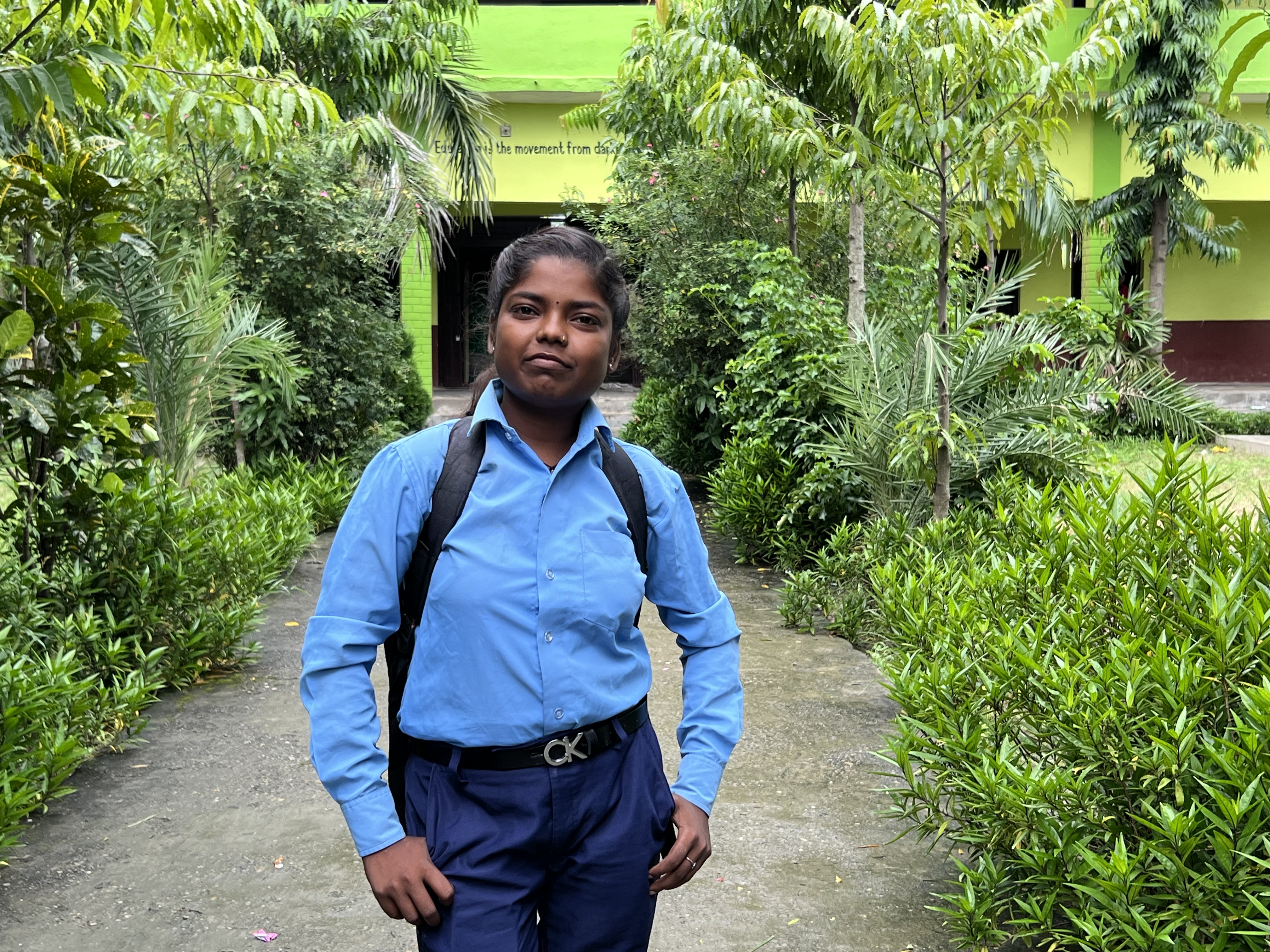“When I had to drop out from school, I felt terrible,” Archana Harijan says. “My dreams got shattered. I felt like crying every day.” In Nepal, Archana is not alone. Her sentiments are echoed by thousands of girls who are forced to drop out of school each year, primarily due to the country’s widespread poverty.
A quarter of Nepali citizens live on less than $1.25 a day, and 18 percent of children between 12 and 14 have not completed primary education.
Among this 18 percent, 49 percent are female.
“My family could not afford my education anymore,” Archana says. Paying for books, uniform, bags, and stationary was beyond the family’s capacity.
Left with no choice, Archana tried to embrace what life had to offer and move on. She took sewing classes and was working as a tailor with a relative for around three years.
Then, one day, something unprecedented happened.
A facilitator from the UDAAN project visited Archana’s home and had a chat with her mother, Kalindra.
UDAAN, which means “flight” or “flying high,” is a specially designed education program offering girls ages 10-14 who have never been to school or dropped out early a second chance to transition into formal public schools.
The facilitator told Kalindra that UDAAN was a free education program and would cover all pertinent expenses, including books, uniforms, and supplies. Moreover, all UDAAN students would get free food at school.
This program offers an intensive 11-month curriculum that is suited to the individual needs of each student. CARE’s UDAAN initiative played a pivotal role in developing the curriculum and gaining endorsement from the Center of Education and Human Resource Development under Nepal’s Ministry of Education, Science, and Technology.
Aside from bringing girls back to schools, UDAAN aims to prevent child marriage as well. In Nepal, 33 percent of girls are married before their 18th birthday, a rate 3.5 times higher than that of boys. One of the best ways to delay marriage is through education.
Archana’s mother immediately got her daughter registered for the programin 2018.
“It was like a dream come true. I was so happy and didn’t know what to do with myself,” Archana says, her face glowing with excitement.
As a UDAAN student, Archana and her friends attended classes six days a week, studying English, Math, Nepali, Science and Social Studies.
As part of the program, Archana and her friends also arranged dialogues with parents where they usually discussed issues related to the rights and entitlement of girl children, personal health ,and hygiene. This sort of engagement helped girls develop leadership and life skills.
“With UDAAN, I felt I got my voice back,” Archana says. Archana is now in grade 11. It’s been four years that UDAAN ushered her to the mainstream public school and opened multiple avenues to plan her future. She now dreams of becoming a pharmacist or a nurse to serve people.

